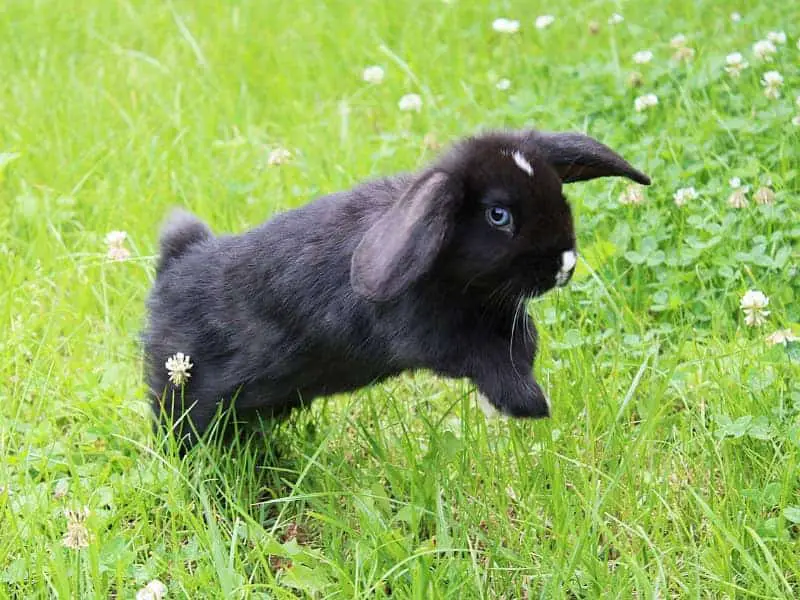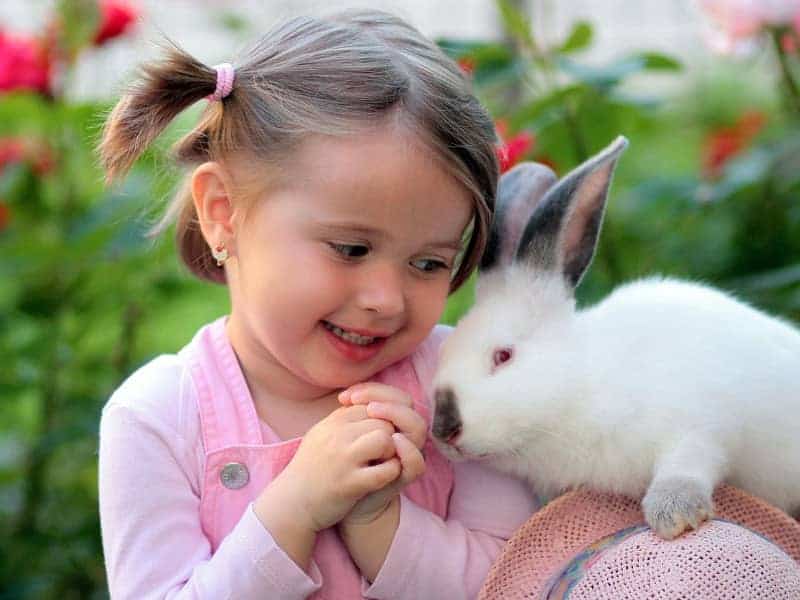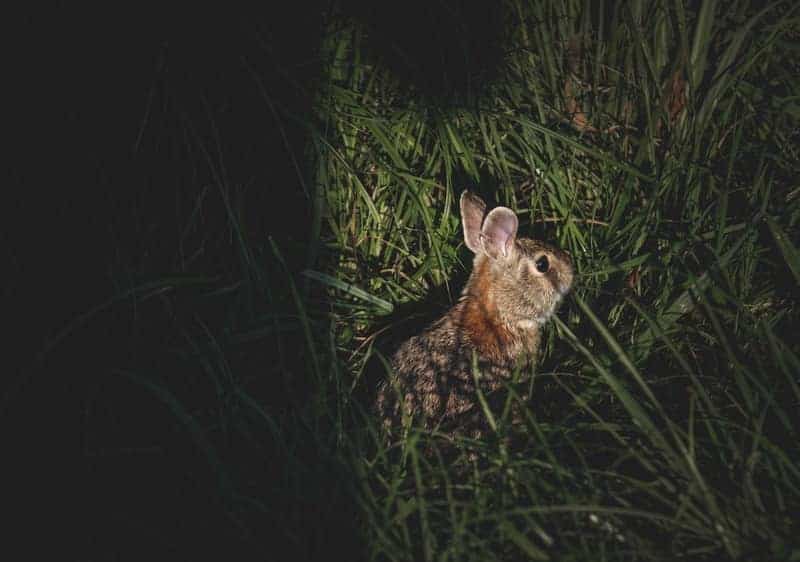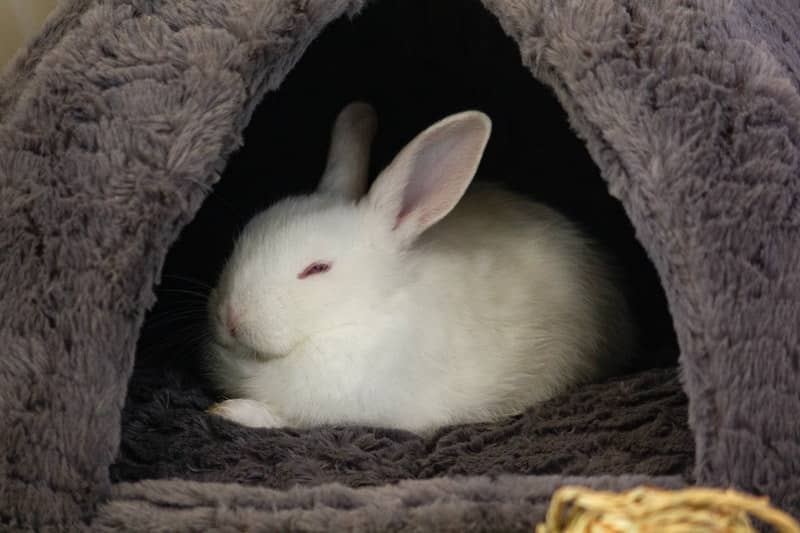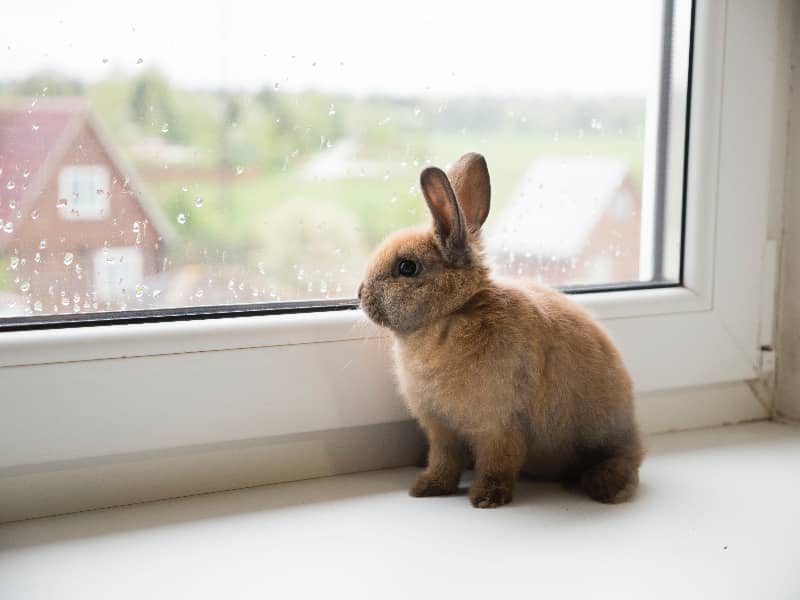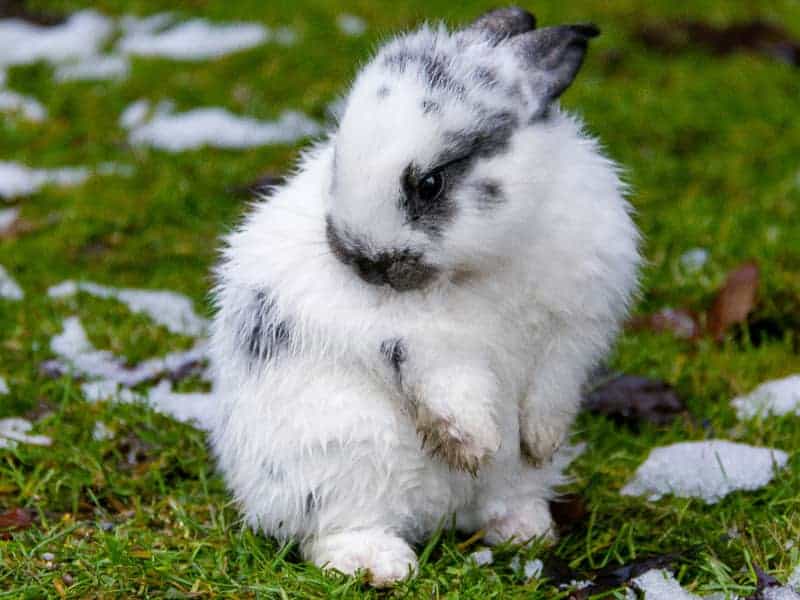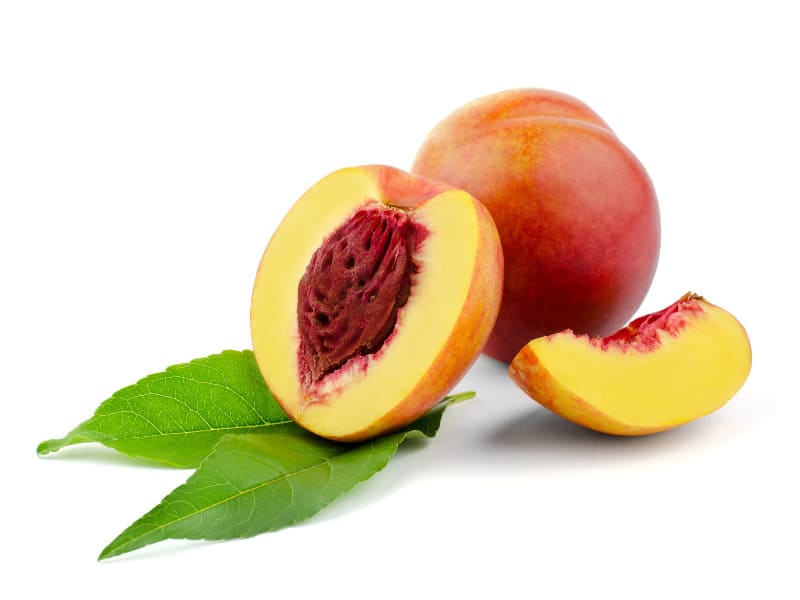
Are rabbits allowed to eat peach?
Sometimes it's just impossible to miss. Your rabbit sits there, wide-eyed, and seems to be watching every move you make. Especially when you're eating a delicious, juicy peach. The question that comes to mind is, of course, can rabbits eat peaches?
Rabbits and peaches, a good idea?
Rabbits are known for their adventurousness and curiosity. They like to try new things and explore their environment with passion. This also applies to their food intake. But although they like to experiment, not everything that tastes good to us humans is also suitable for rabbits. Peaches are one of those fruits that often cause some controversy.
Peaches are sweet, juicy fruits that many people love. They contain a lot of water and are rich in important vitamins such as vitamin A and C. They also provide a good amount of fiber. The question you should ask yourself, however, is: Is it all good for your rabbit?
Peaches: Less is more
When it comes to peaches, the first rule you should follow is: Less is more. Rabbits are basically able to digest peaches. They can eat small amounts of these fruits without health problems. However, peaches are very sweet and contain a lot of sugar. And too much sugar can cause digestive problems for rabbits.
A small amount of peach as an occasional treat is therefore usually fine. But the peach should definitely not become a staple in your rabbit's diet. There are many other fruits and vegetables that are better suited for your rabbit.
The dark side of the peaches: The pits
When we talk about peaches, we think first and foremost of the juicy flesh. But a peach consists of more than just the flesh. Inside is a hard pit that is also inedible to us humans. But what about rabbits?
Peach pits contain amygdalin, a chemical compound that breaks down into prussic acid when eaten. This is toxic to many animals, including rabbits. Therefore, the pits should not be fed to your rabbit under any circumstances.
Are dwarf rabbits allowed to eat peaches? Same game, smaller portions!
If you own a dwarf rabbit, the same rules apply as for larger rabbit breeds, but on a smaller scale. Dwarf rabbits can also eat small amounts of peach without any problems. However, the amount of fruit should be adjusted accordingly due to their smaller body size.
Again, the peach should be considered a rare treat and should by no means be a main component of the diet. It is also important to make sure that the pits are removed before giving your pygmy rabbit a peach.
Beware of peach tree leaves and branches
Now that we have clarified that the pulp of the peach is okay in small quantities, and the seeds are taboo, let's turn to the other parts of the peach plant. What about the leaves and branches of the peach tree?
The thing about the leaves and twigs of peach trees is that, like the seeds, they also contain amygdalin. This means they carry the same risk as the seeds: prussic acid can be released when eaten. This makes these parts of the peach plant potentially dangerous to your rabbit.
You should therefore avoid giving your rabbit twigs or leaves of the peach tree at all costs. There are many other twigs and leaves that are suitable and safe for rabbits. These include apple tree twigs or hazelnut twigs.
Other fruits: a better alternative?
There are many other fruits that contain less sugar and are therefore more suitable for rabbits. Apples, pears and strawberries, for example, can be fed without hesitation as long as the quantities are moderate. And again, the seeds should always be removed.
When feeding fruits, you should always keep in mind that they should only be a small part of your rabbit's diet. The majority should consist of hay, fresh greens and vegetables.
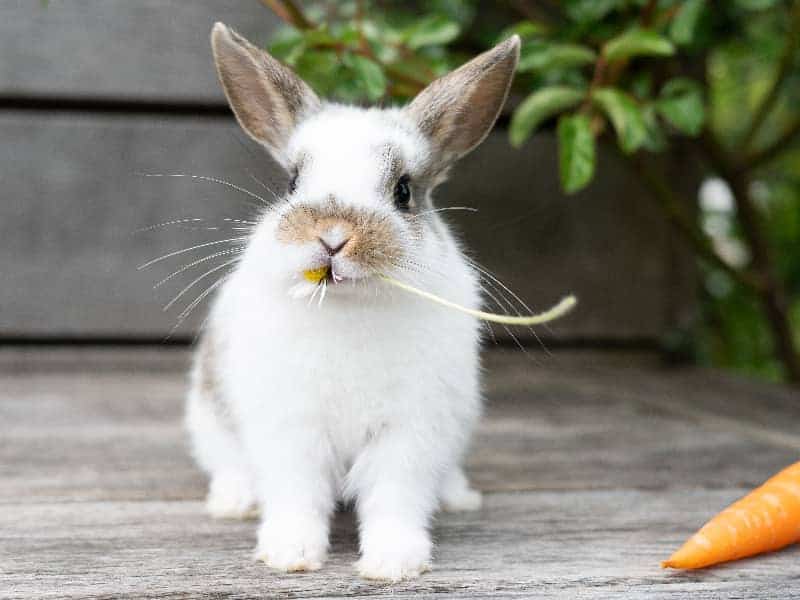
Attention during the changeover: every rabbit is different
It is important to know that every rabbit is different and reacts differently to new foods. What is not a problem for one rabbit may cause digestive upset in another. A gradual introduction of new foods is therefore recommended.
When you give your rabbit peach for the first time, you should give only a tiny amount at first and observe how it reacts. If your Rabbit signs of indisposition or changes in stool, you should immediately stop feeding peaches.
Nutrition myths put to the test: What's the truth?
There are many myths and half-truths circulating on the Internet about rabbit nutrition. One of them is that fruits are generally bad for rabbits. However, this is not true. Although they can be problematic in large quantities, they are healthy in small quantities.
The main source of food for a rabbit should always be hay. This base is supplemented by a selection of fresh greens, vegetables and, in small quantities, fruits. This can include the peach, as long as it is fed only in small quantities and the seeds are removed.
The importance of a balanced diet
Nutrition is a key aspect in the care and keeping of rabbits. A balanced diet is essential to keep your rabbit healthy and active. It helps prevent disease and ensures a long, happy rabbit life.
The main food for rabbits is and remains hay. It provides the necessary fiber for healthy digestion and also ensures that your rabbit's constantly growing teeth are worn down. It should always be available and in sufficient quantity.
Fresh greens and vegetables are other important ingredients in the diet. They provide additional vitamins and minerals and ensure variety. Again, variety is important. Different varieties provide different nutrients and ensure that your rabbit gets everything it needs.
Peaches and other fruits: the sweet garnish
Fruits such as the peach are a delicious addition and can be fed in moderation without hesitation. They provide additional vitamins and provide a welcome change with their sweetness. However, it is important that they only make up a small part of the diet and should only ever serve as a treat.
Fruits contain more sugar than vegetables and hay, which can lead to digestive problems and obesity if eaten in excess. It is therefore important to keep an eye on the amount and not give too much at once.
The right preparation: Here's how
Before you give your rabbit a peach or other fruit, there are a few things to consider. First, the fruit should always be fresh. Avoid overripe or even moldy fruits. These can harm your rabbit and lead to health problems.
Before feeding, cut the peach into small, bite-sized pieces and remove the pit. As mentioned earlier, the seeds are toxic to rabbits due to the amygdalin they contain and can cause health problems if eaten.
Fresh water, never forget
With all the discussion about the right food, one thing must not be forgotten: fresh water. Your rabbit always needs access to fresh, clean water. It plays a central role in digestion and helps move food through the body.
While hay and vegetables provide the majority of your rabbit's water needs, it is still important to always provide water. Especially if you give your rabbit dry foods such as pellets. These contain little water and can increase your rabbit's water needs.
Conclusion: Are rabbits allowed to eat peach?
To summarize: Yes, rabbits may eat peaches, but with caution and only in moderation. The sweet fruit can serve as an occasional treat, but should never be a significant part of the diet. Peach pits, leaves and twigs are taboo because of the amygdalin they contain and should never be fed under any circumstances.
A balanced diet is essential for a happy and healthy rabbit life. The majority of the diet should consist of hay, supplemented with a variety of fresh greens and vegetables. Fruits, including peaches, can serve as an occasional supplement, but should always be given judiciously.
Each rabbit is an individual and reacts differently to different foods. Therefore, when introducing new foods, it is important to always monitor your rabbit's reaction and respond immediately if there are signs of discomfort.
Author

-
Garden animal - A life with nature
Welcome to my animal blog! My name is Dirk and I am happy to take you on my journey through the fascinating world of animals and gardening.
Born 54 years ago, I have had an insatiable curiosity for the animal world around me since childhood. Although I have moved professionally in other industries, my true passion has always been animals and nature. It is remarkable how a small garden has become such an important part of my life.
Many of my fondest memories are associated with the animals that share our home. Whether it's the curious squirrels that scurry across the trees in the morning, the colorful variety of birds that visit our feeders, or the busy bees and butterflies that pollinate our flowers, every moment with them is invaluable to me.
This blog is my contribution to share my experiences, discoveries and insights with like-minded people. Here I will share stories of unforgettable encounters with animals, give tips on gardening and creating wildlife-friendly habitats, and take you on my journeys through nature.
Thank you so much for being here!
Cordial,
Dirk aka garden animal
Last posts
- 27. February 2024PetsVeganes Hundefutter – Grün und Gesund?
- 18. January 2024ChickensOregano für Hühner
- November 27, 2023HamsterDiurnal hamsters
- November 24, 2023HamsterHamster hammock

